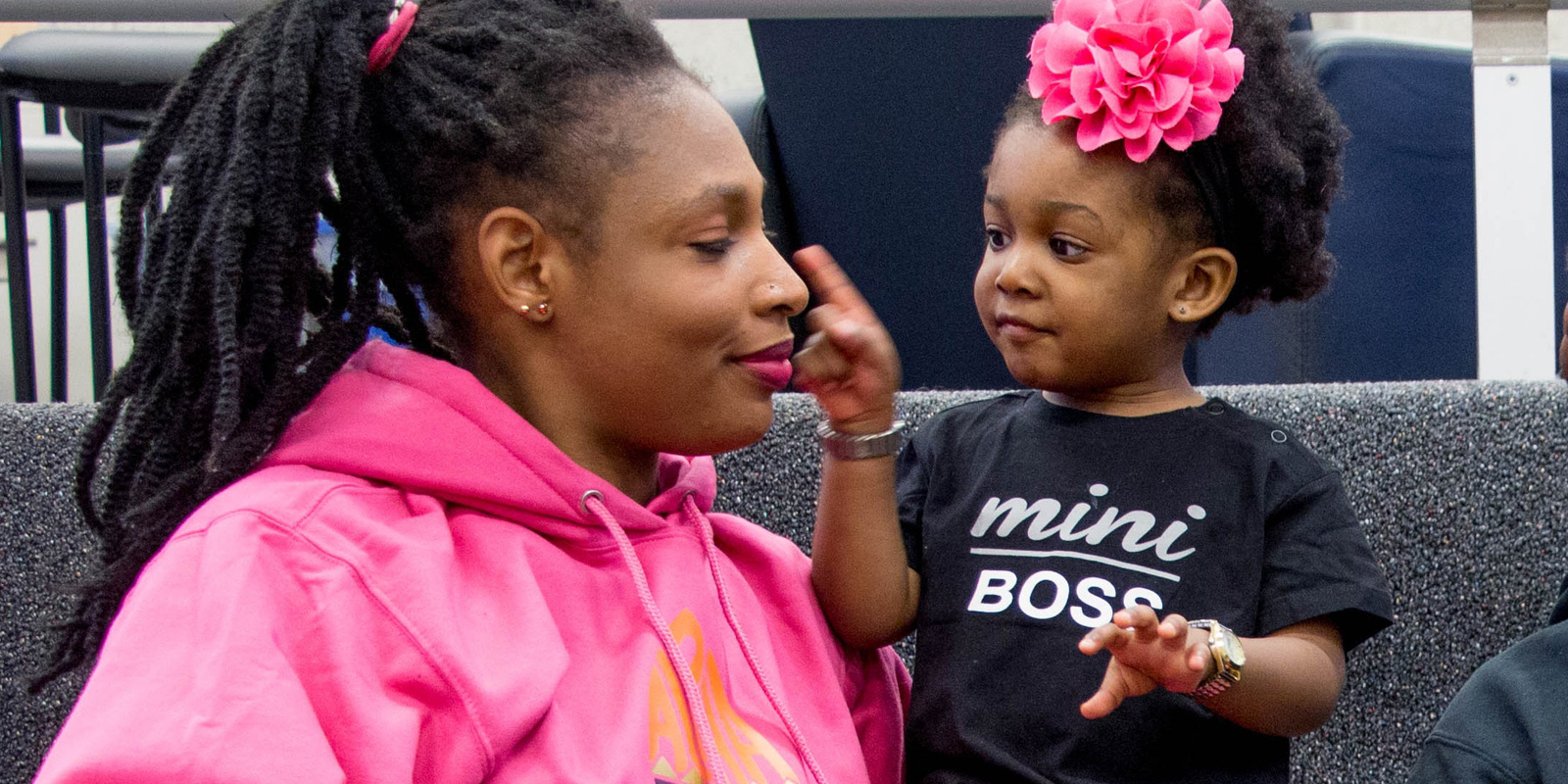Because we can’t take our Early Learning Nation Studio on the road during this time, stay tuned as ELN recaps Top Takeaways from important webinars, town halls and virtual events from the Early Learning field. Read them all and join the conversation! And visit our Early Learning Nation channel on YouTube for interviews with leaders from education, child development, business, politics and more.
Promise Venture Studio discovers for-profit and nonprofit early childhood development entrepreneurs from around the country and connects them to funders, experts, researchers and policy makers who can support their ambitions. The Show+Tell webinars provide a forum for the innovators to make their pitches and invite attendees to connect with them afterwards.
Their July 15 event focused on solutions for the perinatal phase, which goes from pregnancy through the first year postpartum. Nine innovators presented, then a roundtable zeroed in on Colorado’s recently passed package of birth equity bills, which highlighted how social entrepreneurship can drive policy innovation.
Promise Venture’s Vance Lewis (Senior Program Manager) and Awara Mendy Adeagbo (Head of Strategic Initiatives) moderated the virtual event. Adeagbo referred to her personal health journey on the way to giving birth to her baby son last year, saying, “Having a positive birth outcome should not be a matter of luck. The maternal and infant health crisis… is unconscionable and it’s preventable. We can turn this tide by centering the perspectives, experiences and needs of BIPOC communities in a strength-based, holistic way.”
Here are our takeaways from Show+Tell: Birth Equity & Justice:
1. The history is shameful. According to the Centers for Disease Control and Prevention, Black moms are dying at 3 to 4 times the rate of their White counterparts. The statistic is the product of a long history, from slavery and Jim Crow through the disinvestment and policy choices of today. In recent decades, politicians and the media have, in essence, blamed the victim through a narrative that questions mothers’ decisions.
According to Kiley Mayfield of the National Birth Equity Collaborative, this focus on individual behavior has distracted us from systems of oppression that have been in place throughout the nation’s history. Marqi Taylor, founder of Philadelphia’s Birth Brown Cooperative called out “centuries of racial malpractice” that have led us to the point where people of color often don’t trust the medical institutions where they live, which is why activists have formed alternative communities.
2. Birth centers and doulas listen to women and birthing people. Birth Center Equity’s mission is to develop “abundant community birth infrastructure.” Safe, culturally relevant midwifery, explained Leseliey Welch, improves maternal health outcomes and reduces the number of caesarean deliveries. Char’ly Snow of Birth Detroit said birth centers not only save lives, they reduce insurance costs by $2000 per birth.
The solution isn’t expensive technology but rather caring, trusting relationships. Twylla Dillion of HealthConnect One and Tia Murray of Harambee Village made similar arguments for birth doulas who help women navigate the experience, advocate for them and make them feel supported.
3. Data counts—but what kind? Echoing Lewis, who cited the human right to “maintain personal bodily autonomy,” Kimberly Seals Allers, of Irth (that is, the word Birth minus the B for Bias) declared, “Bias-free care should be a human right.” Describing the Yelp-like app for pregnancy and new motherhood, Allers asserted, “Community-driven feedback loops lead to more respectful and equitable maternal and infant care.” Tracy Warren of Astarte Medical made the case for better data informing decisions in government and by institutions.
4. Let communities lead. On July 6, the State of Colorado signed a groundbreaking package of birth equity bills establishing basic human rights standards in perinatal care for all people (including those who are incarcerated), aligning perinatal care data and systems for equity and continuing the Direct-Entry Midwifery program. (According to the National Midwifery Institute, a Direct-Entry Midwife is “an independent practitioner educated in the discipline of midwifery through apprenticeship, self-study, a midwifery school, or a college/university-based program distinct from the discipline of nursing.”)
Show+Tell celebrated the work of Elephant Circle, which championed the package. Founder and director Indra Lusero stressed the importance of listening to community members and letting their priorities dictate strategy.
5. Stay tuned for further progress. Activists and advocates continue to push for local and national solutions. Joy Spencer of Equity Before Birth talked about building dignity through income supports where paid parental leave is missing. Led by Alma Adams (D-NC) and Lauren Underwood (D-IL), the U.S. House of Representative’s Black Maternal Health Caucus recently unveiled the Black Maternal Health Momnibus Act. The legislation aims reverse the tragic history of BIPOC perinatal health through targeted public investment.

Mark Swartz
Mark Swartz writes about efforts to improve early care and education as well as developments in the U.S. care economy. He lives in Maryland.



